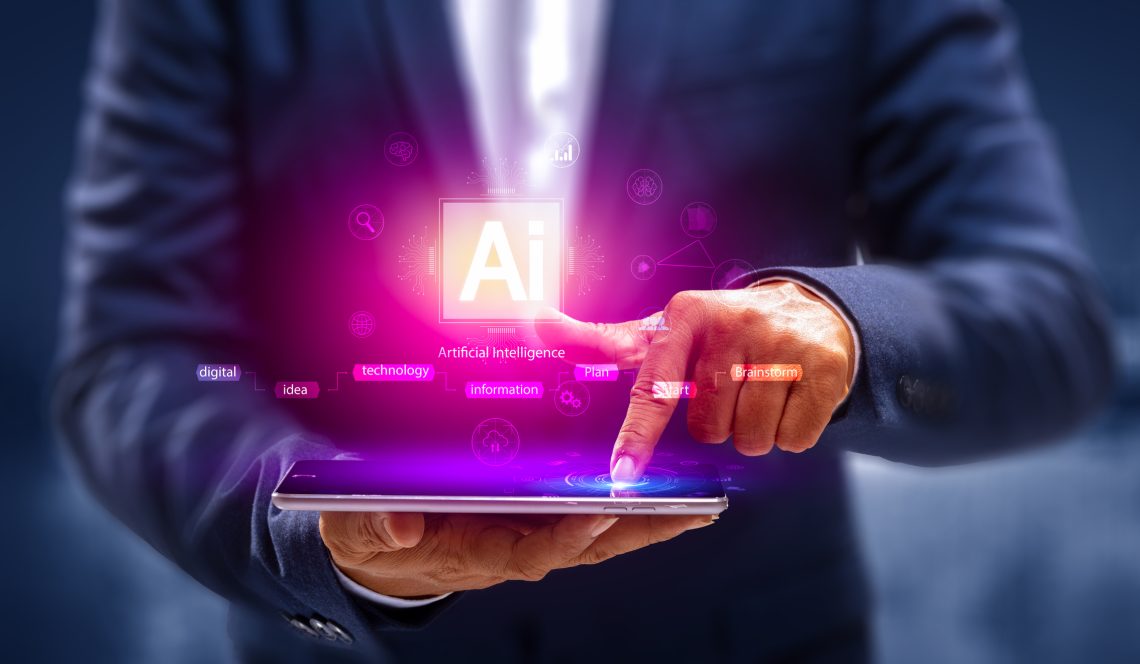Cognition AI is only one of many intriguing concepts in the field of artificial intelligence. Cognitive AI, also referred to as cognitive artificial intelligence, is software that tries to think and learn by imitating the way human brains work using natural language processing (NLP) and machine learning (ML). Despite its apparent simplicity, this novel idea in AI can take two different yet related directions. Let’s deconstruct the essence of Cognition AI, looking at its various methodologies, uses and promise for a fascinating future.
Path One Of Cognition AI
The field of cognition AI is particularly interesting when it comes to mimicking human cognitive functions. Here, the goal is to create artificial intelligence (AI) systems that can think, learn and solve issues similarly to how humans do. This is accomplished by utilizing natural language processing (NLP) and machine learning (ML).
With the help of ML algorithms, AI systems can gradually learn from enormous volumes of data. Consider an AI system that is exposed to a vast number of customer service contacts. Through analysis of these interactions, the system will be able to spot trends in communication styles and issues, and eventually, it will be able to learn how to respond appropriately to new customer inquiries. AI can continuously enhance its performance and adjust to situations that are always changing because of these learning capabilities.
Conversely, natural language processing (NLP) fills in the gaps between human and computer comprehension. Artificial intelligence systems can comprehend the meaning underlying human language by analyzing and comprehending its subtleties.
This enables them to understand a sentence’s underlying mood, context and purpose in addition to its literal meaning. Imagine if your virtual assistant could not only set up appointments but also gauge the urgency and emotional content of your requests, responding appropriately.
A new generation of cognitive AI systems is made possible by the interaction of ML and NLP. These systems can process data as well as analyze it, find connections between it, and come to insightful conclusions.
This makes a wide range of revolutionary applications possible in many industries, namely:
Revolutionizing Customer Service
Customer service is about to undergo a revolution thanks to chatbots that can carry on meaningful discussions, comprehend difficult problems from customers and provide tailored answers. By automating basic queries, cognitive AI can free up human agents to address more complex issues and improve customer satisfaction.
Unlocking New Healthcare Frontiers
AI programs that are proficient in medical terminology are able to evaluate patient data, spot possible dangers and even make diagnosis recommendations. This gives medical personnel the ability to tailor treatment approaches, make well-informed judgments, and maybe save lives.
Transforming the Financial Landscape
Artificial intelligence (AI) can manage investment portfolios, forecast market movements, and analyze financial patterns. This can enable people to make wise financial decisions and give financial advisors insightful information.
Path Two of Cognition AI
A different meaning of “cognition AI” leads us to businesses such as Cognition AI Labs. Their audacious goal is to create AI allies with extraordinary cognitive powers. Devin, their flagship product, is an AI software engineer made to support human programmers. He is a monument to this ambition.
This method highlights how crucial logical reasoning is to the advancement of AI. It dives into comprehending the underlying logic and relationships inside the data, going beyond merely processing it. Imagine an artificial intelligence (AI) that can produce lines of code, understand its goal, recommend several strategies, and even spot any mistakes.
Such reasoning-centric AI has important ramifications. It could be used for:
Automating Laborious Coding Tasks
Programmers’ productivity might be severely hampered by repetitive coding chores. These jobs can be completed by cognitive AI systems like Devin, freeing up human programmers to concentrate on more artistic parts of software development, such as creating algorithms and resolving challenging issues.
Encouraging Productive Cooperation
Imagine an AI system that can comprehend your code and provide suggestions for changes, spot any flaws, and even provide an explanation for its actions. This opens the door to human-AI collaboration that works seamlessly and allows both to use their skills to produce amazing results.
Boosting Software Development Innovation
Cognitive AI can expedite the software development process by automating repetitive tasks and promoting teamwork. This may result in more creative solutions, quicker development cycles, and a notable increase in overall productivity.
The Convergence Of Both Paths
While paths one and two may seem distinct, they share the same core objective of expanding the capabilities of artificial intelligence and creating machines that can think and act more intelligently. As both fields of study advance, we should anticipate a beautiful convergence.
Imagine artificial intelligence (AI) systems that can reason through massive volumes of data, spot patterns, and come to insightful conclusions. This paves the way for an AI future that goes beyond basic automation and explores the concept of actual intelligence.
The potency of these two pathways, when combined, could open up revolutionary possibilities in the following areas:
Scientific Findings
Cognitive AI systems with strong reasoning and learning skills can evaluate scientific data from a variety of sources, spot important connections, and even come up with original concepts. This has the potential to quicken scientific research and result in innovations in the domains of materials science, climate change, and medicine.
Imagine an artificial intelligence (AI) system that analyzes genetic data from millions of people, finds previously unknown genetic markers for diseases, and even suggests possible targets for future drugs.
Or picture an AI system going through enormous databases on climate patterns, finding obscure links between climate change and human activity, and coming up with creative ways to reduce the hazards associated with climate change.
Engineering Marvels
A new era of intelligent engineering may be brought about by the confluence of learning and reasoning in AI. Imagine artificial intelligence (AI) systems that cannot only analyze current designs but also to suggest new design ideas, reason from the basic principles of physics, and even optimize manufacturing processes.
This might result in the development of stronger, lighter materials, more effective energy systems, and ground-breaking discoveries in industries like aerospace and robotics.
Creative Exploration
Cognitive AI may surprisingly enhance the field of creativity, which has long been thought to be exclusively human. Robust AI systems possessing robust learning and reasoning abilities have the potential to scrutinize enormous quantities of artistic data, detect patterns and trends across many creative types, and even produce innovative artistic creations.
Imagine an AI system creating music that makes the listener feel a certain way while also adhering to musical theory. Or picture, for example, that an artificial intelligence system is capable of producing visually appealing and deeply meaningful art.
Naturally, the job of the artist would not disappear; rather, these AI systems would probably act as potent instruments to enhance human creativity and expand the parameters of artistic expression.
The Human-Machine Relationship’s Evolution
How AI converges learning and reasoning will surely reshape human-machine interaction. Envision a future in which artificial intelligence (AI) assistants can comprehend your commands and make decisions based on your objectives and environment, providing proactive support and anticipating your needs.
This has the potential to transform individual productivity, improve accessibility for those with impairments, and promote a more harmonious and cooperative interaction between humans and robots.
The Road Ahead For Cognitive AI
Although the subject of cognition AI is still in its infancy, it has the potential to bring about revolutionary change. We should anticipate breakthroughs in several domains as we work to create AI systems that can mirror human intelligence in terms of their ability to reason, learn, and solve problems. With its ability to transform healthcare and speed up scientific research, cognitive AI has the potential to improve everyone’s future.
However, navigating this future necessitates giving serious thought to the difficulties and moral dilemmas raised by the advancement of AI. We can use the power of cognition AI to build a future that benefits all of mankind by encouraging open dialogue, responsible AI practices and human-AI collaboration.
As the field’s environment continues to change as fresh findings and studies are conducted, be sure to join the discussion, maintain your curiosity, and work toward shaping intelligence’s future.





